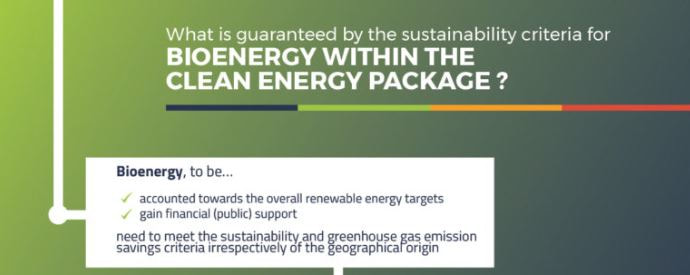Palm Oil Biofuels Gets a Break from EU RED
The palm oil biofuels industry has been given a break by the EU Parliament. Whether it came from the lobbying of biofuel producers in the EU or the threat of another trade war with palm oil producing countries of Indonesia and Malaysia, the key fact remains that the earlier proposed ban of palm oil as a biofuel feedstock by 2021, has now been pushed back to 2030.
With a possible review of the strategy in 2023, this extension is a smart climate decision as it allows ample time for several factors to play out.
The coming years will hopefully provide clearer direction on what needs to be done to reduce the human impact on climate. The steady rise in temperatures despite all the renewables in place today support the leaked IPCC report which is calling for much higher levels of renewables than the current deal just approved for RED.
A renewable source of energy that can be grown is superior to sources that rely on finite sources of metals and minerals
It will take every bit of knowledge and technology available today to keep the global temperature rise under 2 Celsius. Crop biofuel as the source with the highest potential is unfortunately being sidelined or “penalized” in the words of Pekka Pesonen, who spoke on behalf of the associations representing the EU biofuel chain, Copa and Cogeca:
“The EU should create a policy framework which supports all sustainable forms of renewable energy and contributes to the reduction of fossil fuels’ use and protein feed imports. EU biofuels have proven to do all that.”
The “sustainability risks” being slapped on to bioenergy is an unreasonable one which can be refuted with certification. The European Biomass Association (AEBIOM) lauded the first European-wide sustainability criteria for solid biomass. This sustainability roadmap will be a good guide for other sectors, in particular palm oil biofuels, to follow as part of the climate solution beyond 2030.
With a possible review of the strategy in 2023, this extension is a smart climate decision as it allows ample time for several factors to play out.
- With renewable targets at 32% which was decried by NGOs Greeenpeace as too low, the next few years will show if this target is indeed sufficient to keep temperature rise under 2 Celsius.
- It allows more time to better gauge the capacity of European grown biofuel feedstock to grow a sustainable local supply. The European Commission’s plans for the post 2020 Common Agricultural Policy has already been criticized for weakening environmental protection leading a conservation group to say that the proposals will “allow another decade of biodiversity decline.”
- It will allow time for other renewables, most notably solar and wind energy, to prove if they are viable in light of their critical need for finite sources of precious minerals to provide a reliable source of energy. The increase in bioenergy to 32% was said to drive demand for electric transport but any ghg savings from electric transport is negated by the energy source to recharge those batteries, especially in heavy coal dependent countries like Germany. Even when charged by solar energy, there are many questions as to how green solar is when its social and environmental impact as been noted but little studied.
The coming years will hopefully provide clearer direction on what needs to be done to reduce the human impact on climate. The steady rise in temperatures despite all the renewables in place today support the leaked IPCC report which is calling for much higher levels of renewables than the current deal just approved for RED.
A renewable source of energy that can be grown is superior to sources that rely on finite sources of metals and minerals
It will take every bit of knowledge and technology available today to keep the global temperature rise under 2 Celsius. Crop biofuel as the source with the highest potential is unfortunately being sidelined or “penalized” in the words of Pekka Pesonen, who spoke on behalf of the associations representing the EU biofuel chain, Copa and Cogeca:
“The EU should create a policy framework which supports all sustainable forms of renewable energy and contributes to the reduction of fossil fuels’ use and protein feed imports. EU biofuels have proven to do all that.”
The “sustainability risks” being slapped on to bioenergy is an unreasonable one which can be refuted with certification. The European Biomass Association (AEBIOM) lauded the first European-wide sustainability criteria for solid biomass. This sustainability roadmap will be a good guide for other sectors, in particular palm oil biofuels, to follow as part of the climate solution beyond 2030.

